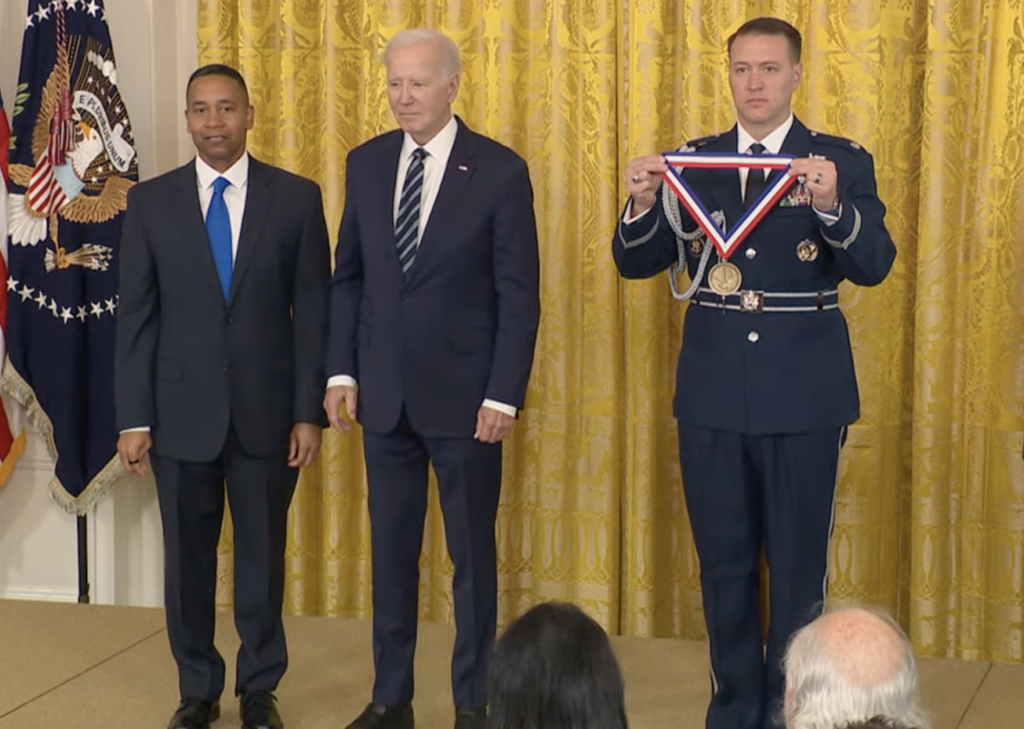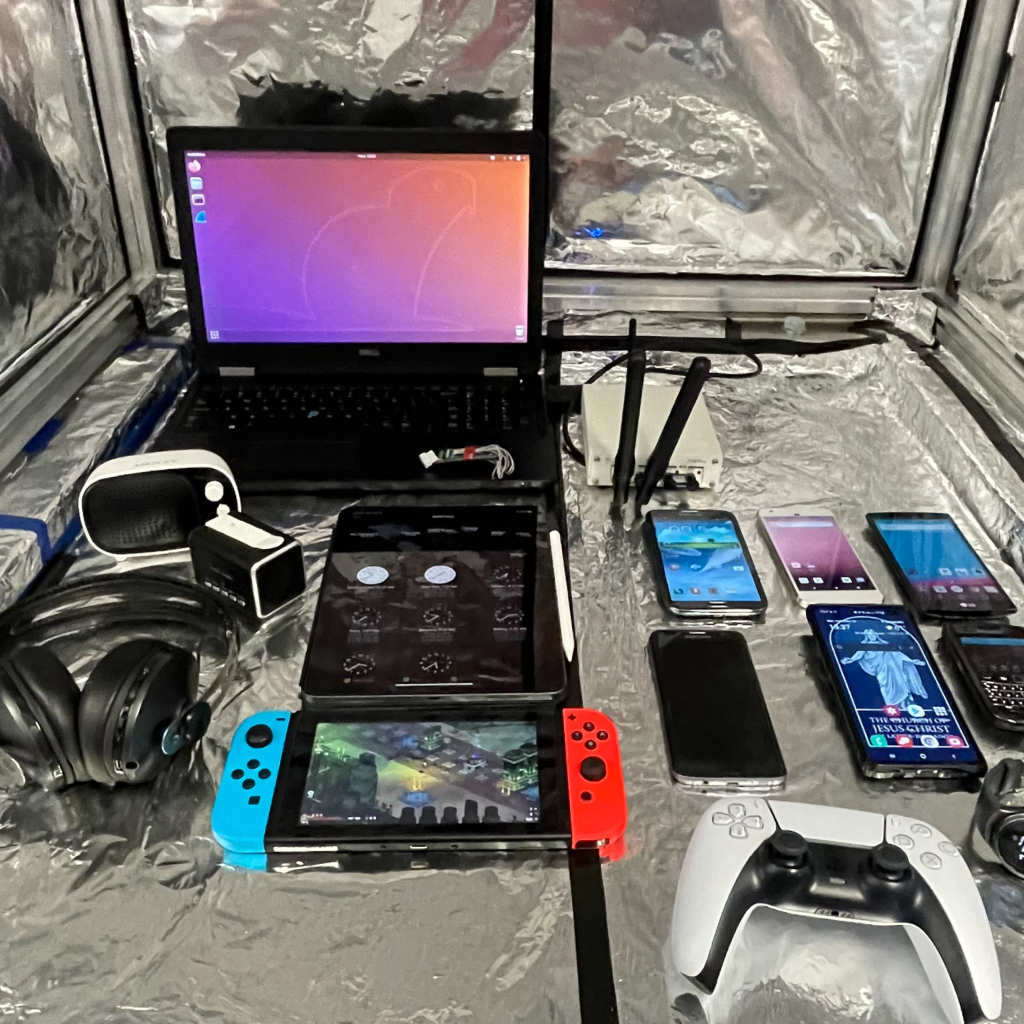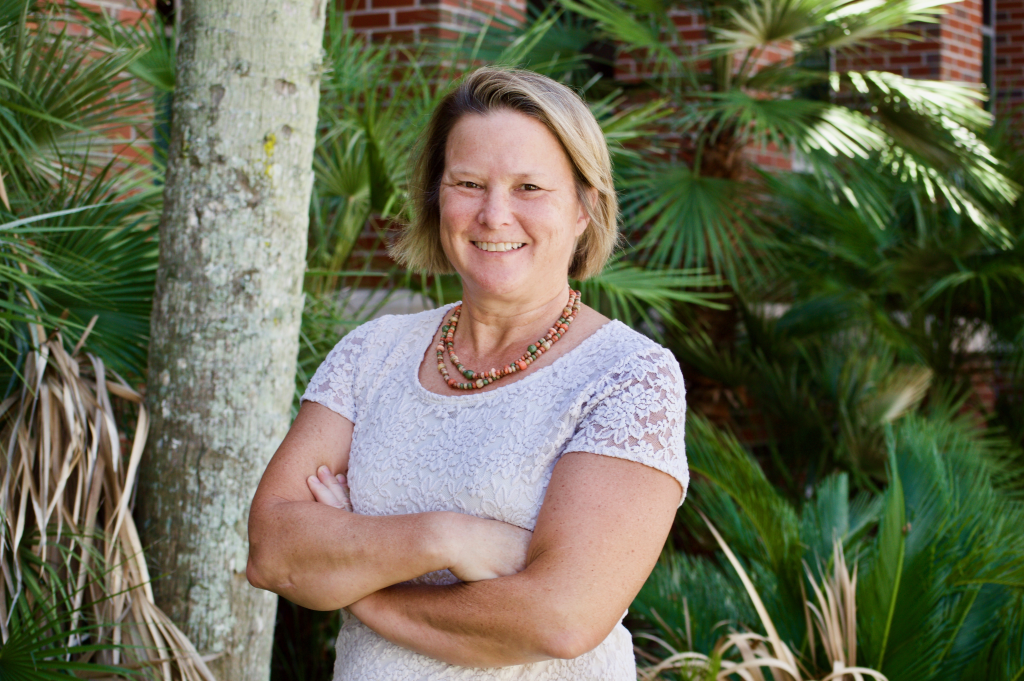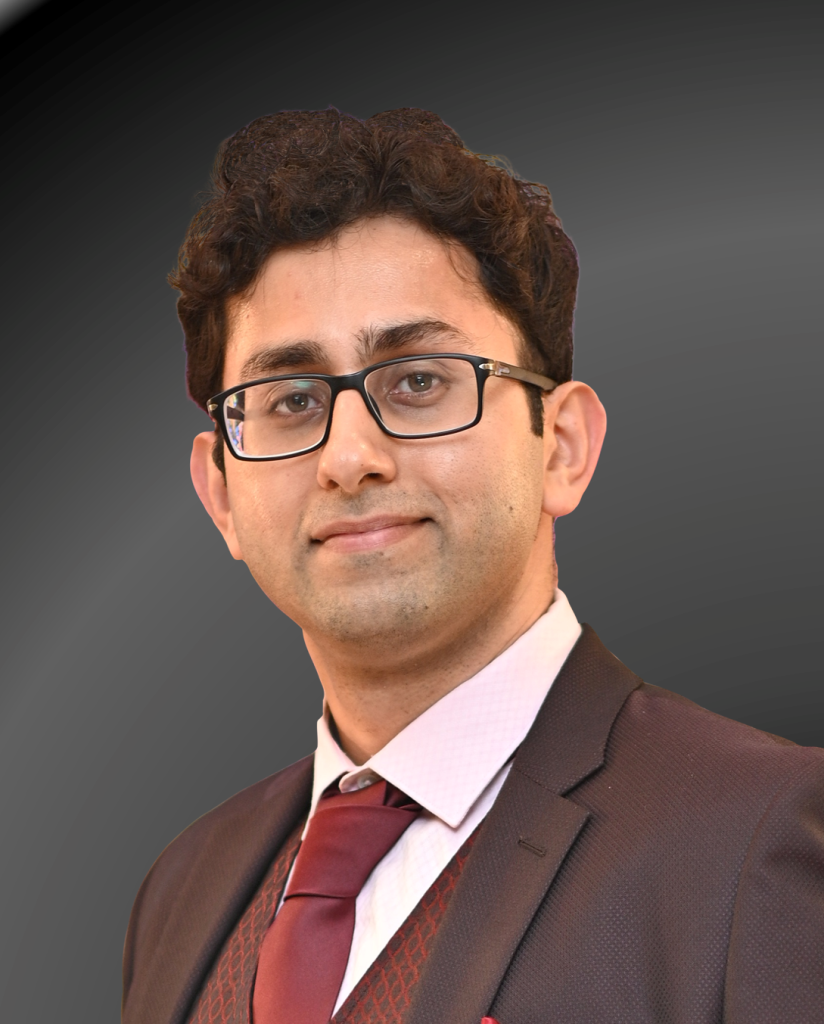

CISE Dept Chair and FICS faculty member Dr. Juan Gilbert was recently honored with the National Medal of Technology by President Joe Biden.
The National Medal of Technology and Innovation is the nation’s highest honor for technological achievement, bestowed by the President of the United States on leading innovators for their outstanding contributions to America’s economic, environmental, and social well-being. This prestigious award was in response to his research pioneering a universal voting system that makes voting more reliable and accessible for everyone and for increasing diversity in the computer science workforce. Dr. Gilbert’s interest in voting security grew after the 2000 U. S. Presidential election expose flaws in the country’s voting technology that can adapt to voters of varied abilities. “We were trying to fix a problem, ” Gilbert said. “If you can’t vote, how is that different from not having the right to vote? What is gratifying is changing the history of voting.”
More information on this prestigious award and Dr. Gilbert’s research can be foundhere. A recording of the full event can be found here.
Research Spotlight


Today we showcase the research of FICS Research Assistant Tyler Tucker which focuses on demonstrating that the non-discoverable mode of Bluetooth Classic is fundamentally broken.
Bluetooth Classic is an extremely pervasive wireless protocol that most of us use on a daily basis; in fact, there are probably more Bluetooth radios out there than humans on Earth. With such a scale, he decided to look into the traceability of devices, and therefore the traceability of device owners. When a Bluetooth device is done pairing, it will become Non-Discoverable, meaning that it will not transmit information about itself to local devices. Past work in this space showed that an attacker can get around this security feature somewhat by recovering most of the address of the device after simply monitoring its transmissions for a few seconds. We build upon this work by showing that with sufficient knowledge of the device address, the attacker can then connect directly to the device and recover all of the information that is concealed by Non-Discoverable mode. This information includes the device name (e.g., Tyler’s iPhone), which often includes personally-identifying information about the device owner. It also includes the full device MAC address, which is a permanent over-the-air identifier for the device. Once an attacker knows this, they can ‘ping’ for the device wherever they are to immediately find out if the device owner is in their vicinity. Also, the target device becomes vulnerable to other attacks as this approach directly connects to it during the process of recovering information. This research was a collaboration with Hunter Seale, Dr. Kevin Butler, and Dr. Patrick Traynor and funded by the National Science Foundation.

Congratulations to the UF Collegiate Penetration Testing Team on their second-place finish in the U.S. Southeast Regional Collegiate Penetration Testing Competition. The competition combines technical, communication, and collaboration skills in a simulated evaluation of a company’s computing resources. Technical knowledge and skills are applied to identify security weaknesses in the company’s computational environment. Communication involves both written and oral reports to both technical and nontechnical audiences. Successful teams have members who collaborate effectively to address all these challenges in a very limited time frame. This year’s simulated company was an airport including controls for smart terminals, trains, and airplanes. UF students involved were Ayden Colby, Adam Hassan, Yuliang Huang, Ziyin (Dean) Liu, Eric Mercier and Alanis Reviera-Narvaez.
New Faculty
Please join us all in welcoming new faculty member Cheryl Resch to the FICS faculty. Assistant Instructional Professor in the Engineering Education Department at the University of Florida. She teaches core Computer Science and cybersecurity courses.
Before joining the University of Florida, Ms. Resch spent 29 years at the Johns Hopkins University Applied Physics Laboratory. For the last 15 years, Ms. Resch worked in Information Assurance and Cybersecurity, on secure computing and cybersecurity architecture for the DoD and DHS.


Congratulations to Dr. Baibhab Chatterjee on receiving the 2023 Eaton Award in Design Excellence. Dr. Chatterjee’s innovative approach addresses the longstanding challenges of brain implant communication and demonstrates how design excellence can intersect with the frontiers of biology, electronics, and healthcare. Chatterjee’s research focused on designing an ultra-low power, yet high-data-rate wireless microdevice with a vision of creating a distributed network of deep brain/neural implants with minimal end-to-end system loss for data communication. More information on his current research can be found here.

FICS Director Dr. Kevin Butler recently traveled to Orlando for a panel held by the Florida Chamber of Commerce’s Future of Florida Forum on Making Florida a Top 3 State for Research and Development. Dr. Butler discussed securing Florida’s innovation and economic development and the uniquely important role played by the University of Florida, as well as how research advances within FICS protect individuals and businesses and spur economic innovation within the state.
